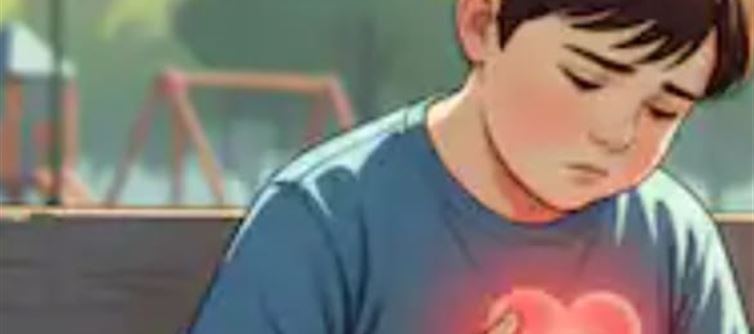
The Hidden Dangers
Childhood obesity isn’t just about appearance or weight; it’s a serious health issue.
Excess weight can put early strain on the heart, setting the stage for long-term cardiovascular problems.
How the heart Feels the Strain
The heart is a muscle that pumps blood throughout the body.
In overweight children, the heart must work harder to supply blood, increasing its workload.
Continuous extra effort can cause the heart to become thicker, stiffer, and less efficient.
Similar to lifting heavy weights daily, a heart under constant stress can become weak or damaged.
Early Warning Signs to watch For
High blood pressure (hypertension)
Elevated cholesterol or triglycerides
Shortness of breath during physical activity
Fatigue or low stamina
Rarely, chest discomfort
Early fat buildup in arteries is a precursor to heart disease in adulthood.
Why Action Can’t Wait
Heart problems once seen only in adults are now appearing in teens and young adults, sometimes even earlier.
Children carrying excess weight may face serious cardiovascular issues in their 30s or 40s without early intervention.
Beyond the Heart
Childhood obesity increases the risk of:
Type 2 diabetes
Sleep apnea
Joint problems
Emotional challenges like low self-esteem or anxiety
These issues often reduce physical activity, creating a difficult cycle to break.
Practical Steps parents Can Take
Encourage Active Play: Aim for at least 1 hour of physical activity daily.
Limit Screen Time: Reduce phones, TVs, and tablets to promote movement.
Offer Healthy Meals: Focus on fruits, vegetables, whole grains, and lean proteins.
Be Role Models: Demonstrate healthy habits for children to follow.
Schedule Regular Check-Ups: Routine visits help identify and manage heart risks early.
Key Takeaway
Childhood obesity is more than weight—it’s a question of heart health.
Early recognition and consistent lifestyle changes can help children develop stronger bodies, healthier hearts, and a longer, active life.




 click and follow Indiaherald WhatsApp channel
click and follow Indiaherald WhatsApp channel